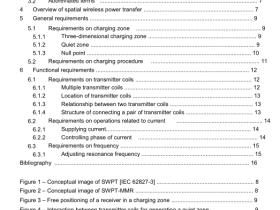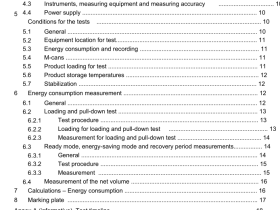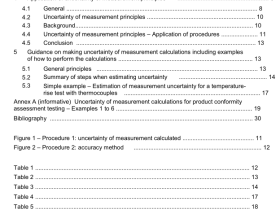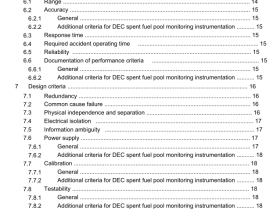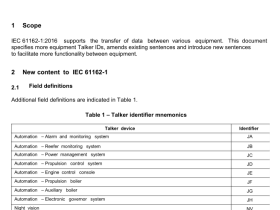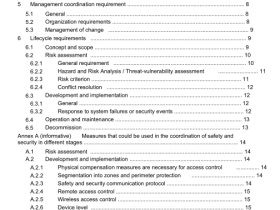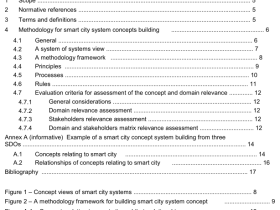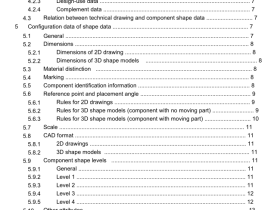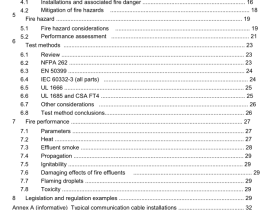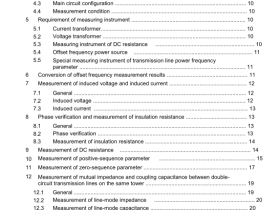IEC 61039 pdf – Classification of insulating liquids
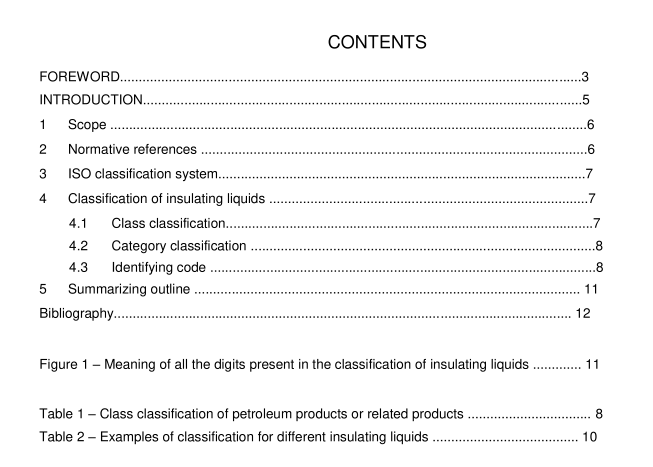
IEC 61039 pdf – Classification of insulating liquids
1Scope
This International Standard establishes the detailed classification of the N family (insulating liquids) that belongs to class L (lubricants, industrial oils and related products) in accordancewith IS0 8681 and lSO 6743-99, affecting product categories that include products derived
from petroleum processing, synthetic chemical products and synthetic and natural esters.
Normative references
The following referenced documents are indispensable for the application of this document.
For dated references, only the edition cited applies. For undated references, the latest editionof the referenced document (including any amendments) applies.
IEC/TS 60076-14:2004,Power transformers -Part 14: Design and application of liquid-immersed power transformers using high-temperature insulation materials
IEC 60296:2003,Fluids for electrotechnical applications – Unused mineral insulatingoils for transformers and switchgear
IEC 60465:1988,Specification for unused insulating mineral oils for cables with oil ducts
IEC 60836:2005,Specifications for unused silicone insulating liquids for electrotechnicalpurposes
IEC 60867:1993,Insulating liquids – Specifications for unused liquids based on syntheticaromatic hydrocarbons
IEC 60963:1988,Specification for unused polybutenes
IEC 61099:1992,Specifications for unused synthetic organic esters for electrical purposes
ISO 1928:1995,Solid mineral fuels – Determination of gross by the bomb calorimetric method,and calculation of net calorific value
ISO 2592:2000,Determination of flash and fire points – Cleveland open cup method
ISO 6743-99:2002,Lubricants, industrial oils and related products (class L)- Classification-Part 99: General
ISO 8681:1986, Petroleum products and lubricants – Method of classification – Definition ofclasses
OECD 301:1992,OECD guideline for testing of chemicals – Ready biodegradability
ASTM D240-02,Standard test method for heat of combustion of liquid hydrocarbon fuels bybomb calorimeter
3lso classification system
ISO 8681 sets out the main rules of the classification system that applies to petroleumproducts,lubricants and related products.
ISO 8681 suggests, as far as possible, to choose the application field as the main principle forthe classification of petroleum products, lubricants,and related products. It also suggestsclassifying on the basis of the product typology, e.g. fuels are classified first of all on thebasis of typology and secondly on the basis of end use.
The lSO classification principle is based on the allocation of a code consisting of letters andnumbers for the main classes and categories of petroleum products.
The complete nomination consists of:
– the initials “ISO”;
– the class of the petroleum product or related product, indicated by a letter (see Table 1),
which has to be clearly separated from the other symbols;
the category, indicated by a group of letters ranging from 1 to 4, the first one alwaysidentifying the family to which it belongs and the others assuming a meaning.
appropriately explained in the reference standard,which depends on the particularcategory of concerned products;
(optional) some numbers, which can be added, to complete the nomination and that havea meaning appropriately explained in the reference standard for that particular category ofproducts.
ln compliance with ISO 8681, the code should have the following general form:
ISo- CLAss – CATEGORY -(eventual)NUMBERS
or the short form:
CLAsS – CATEGORY -(eventual)NUMBERS
4Classification of insulating liquids
ln accordance with lSO 8681, the classification system indicates the products with anomination that includes:
– the abbreviation “ISO””;
the class of the petroleum products or related products is indicated by a letter that in thisstandard has the meaning defined in Table 1;
the category is indicated by four letters whose meaning is explained in 4.2;- a seven-figure number that makes up the identification code (described in 4.3).
4.1Class classification
